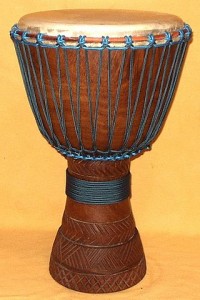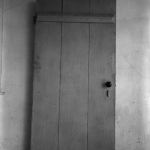Last night I had a big fight with my husband. We’ve been fighting a lot in the almost 3 years since we had a child; the isolation and pressure of the nuclear family encourages every married co-parent to be their worst self. I’m tired. The house is always a mess. I hate trying to fit my writing and my witchcraft and my other interests around 14-hour days of job and childcare. At one point, when we were talking about time-wasting, my husband said, “Maybe we should take an extended break from–” I held my breath. “social media,” he finished. I burst into tears. I was certain he was going to say “each other.”
I went to bed feeling like an absolute mess. I managed to do my nightly practice: I lit the candle on my Morrigan shrine and the incense on my working altar, I did my tarot reading, I said the Shema. I practiced my frame drum under the almost-full moon. I told myself that this was all worth doing even if I felt nothing magical inside.
But this morning, something interesting happened.

I’ve had my djembe in the bedroom closet for the past few weeks–long story–but my husband needed to make space for a suitcase, so I told him he could take it out. I needed to start practicing again anyway. This morning, I got out of the shower and took my towel off in the bedroom to get dressed, same as always. But I was suddenly struck (get it??) by the sight of the djembe in the corner. I had one of those moments of sharpened reality: the goblet shape of the drum and the human shape of me, the two of us facing each other, waiting for something.
I acknowledged the moment and went downstairs to make breakfast for my daughter. As she ate, I took a moment to finally wash a teacup so long-neglected that it had gotten moldy inside. When I put down the bottle of dish soap, one perfect bubble came out of the top and began to float around. It was small enough to be stable, but large enough that I could see the globules of soap swirling around on its surface. It looked like a perfect little planet drifting in space.
I’m fully aware of the dangers of calling a toddler’s attention to something tiny and delicate, but after a few minutes of admiring it, I couldn’t help but show it to her. Predictably, her very first reaction was that she wanted to pop it. Even so, I obeyed a sudden instinct and wafted it over to where she was sitting by waving my hands around it. When she reached her hand out to do the deed, the bubble suddenly drifted up out of her reach. “I wanna pop it!” she complained. “It might not want to be popped,” I replied. She didn’t seem to buy that, but she nevertheless sat back to watch it float. I told her about how we’re so tiny the earth looks flat to us, but it’s actually round, like the bubble.
Then the bubble did an amazing thing: it floated up into the chandelier hanging above our table and weaved between the branches before coming out again. My daughter and I laughed in delight. “That was amazing!” I said. “It went in the lamp!” she added, the toddler version of “Holy shit, did you fucking see that!?”
The bubble started to come close to her again and I knew the end was near. After examining its surface patterns for another moment, I stepped back as she stretched out her hand. Pop.
It’s all well and good to invoke gods and spirits in elaborate rituals. But it’s far too easy to collect explosively numinous experiences like badges: I aspected Hecate, the Morrigan spoke to me, I proved to myself that the gods are real. I’m dismayed at the growing sentiment among Pagans that literal polytheism is the One True Way. Monotheism is just colonialism, non-subservient practices are either fluff or dangerous, and anyone who doesn’t believe the gods are literally real isn’t doing religion at all. Paganism has developed a dynamic found in other religions: the hardliners feel free to bash the softies all they want, but are aghast when they themselves are criticized.
I often love the showier aspects of witchcraft and Paganism. But what keeps me going are the quiet moments: the moments when drums and bubbles speak to you, when animism isn’t a thing you tell yourself but rather a deep imperative. The moments when you’re reminded of Shekhinah’s original definition: indwelling. The moments when God/dess dwells within you and around you, when everything, seen and unseen, is God/dess.
The moment when you feel your strength renewed–not to put in more hours at work or get more stuff done, but to walk through the world with an open, curious, vulnerable heart. That, to me, is Shekhinah.

CLICK HERE TO “LIKE” PATHEOS PAGAN ON FACEBOOK
Support great Pagan writing by liking Patheos Pagan and Asa West!
















